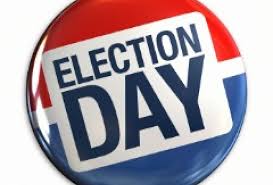

Deerfield-News.com-Deerfield Beach, Fl-One and a half million Floridians convicted of felonies get their chance to vote again, starting today. Floridians voted overwhelmingly for this amendment on Election Day.
From -Ballotpedia.org-
Florida Amendment 4, the Voting Rights Restoration for Felons Initiative, was on the ballot in Florida as an initiated constitutional amendment on November 6, 2018. It was approved.
| A “yes” vote supported this amendment to automatically restore the right to vote for people with prior felony convictions, except those convicted of murder or a felony sexual offense, upon completion of their sentences, including prison, parole, and probation. |
| A “no” vote opposed this amendment to automatically restore the right to vote for people with prior felony convictions, except those convicted of murder or a felony sexual offense, upon completion of their sentences, including prison, parole, and probation. |
Aftermath
Implementing Amendment 4
Florida Governor Ron DeSantis (R) said that Amendment 4 would require the Florida State Legislature to pass implementing legislation for the amendment before it can take effect. The Florida Legislature is expected to convene on March 5, 2019. Florida Secretary of State Ken Detzner (R) said, “We need to get some direction from [the Legislature] as far as implementation and definitions — all the kind of things that the [elections] supervisors were asking. It would be inappropriate for us to charge off without direction from them.”[3] Florida Senate President Bill Galvano (R) said “By a lot of accounts, there’s no action even required for its implementation.”[4] Proponents of the measure said that the initiative’s language is self-executing and does not require implementing legislation.[5] Former-Tallahassee Mayor Andrew Gillum (D), DeSantis’ 2018 general election opponent, tweeted: “The role of the governor is to faithfully execute the laws, including #Amendment4 on January 8 — and not one day later. Justice delayed is justice denied.”[6]
Election results
| Florida Amendment 4 | ||||
|---|---|---|---|---|
| Result | Votes | Percentage | ||
| 5,148,926 | 64.55% | |||
| No | 2,828,339 | 35.45% | ||
-
- Precincts reporting: 100%
- Source
Overview
What did Amendment 4 change about voting rights of convicted felons?
Amendment 4 was designed to automatically restore the right to vote for people with prior felony convictions, except those convicted of murder or a felony sexual offense, upon completion of their sentences, including prison, parole, and probation.[7] As of 2018, people with prior felonies never regain the right to vote in Florida, until and unless a state board restores an individual’s voting rights. Under former Florida Governor Charlie Crist, (who was elected as a Republican, changed his affiliation to unaffiliated toward the end of his term in office, and registered as a Democrat after his time as governor) the Executive Clemency Board automatically restored the rights of felons who had completed their sentences, paid restitution, and had no pending criminal charges. Current governor Rick Scott (R) eliminated those reforms made by the Crist administration.[8]Under Scott’s administration, convicted felons must wait five or seven years, depending on the type of offense, after the completion of their sentences to request that the board consider the restoration of their voting and other civil rights.[9][10]
Going into the election, Florida was one of four states where convicted felons do not regain the right to vote, until and unless a state officer or board restores an individual’s voting rights. This felon voting law was part of the original Florida Constitution of 1968—the state constitution active in 2018—as well as the state constitutions of 1885 and 1868. On February 1, 2018, U.S. District Court Judge Mark Walker ruled Florida’s processfor the restoration of voting abilities for felons unconstitutional, saying it violated the First Amendment and the Fourteenth Amendment.[11] Gov. Scott announced that he would appeal the ruling to U.S. Court of Appeals for the Eleventh Circuit. The Eleventh Circuit concurred with Gov. Scott’s request, staying the lower court’s ruling.[12]
A report from The Sentencing Project estimated that, as of 2016, around 6.1 million people (about 2.5 percent of the U.S. voting age population) were disenfranchised due to a felony conviction. Florida was estimated to have 1,686,318 persons—10.43 percent of the voting age population—disenfranchised due to felonies. A state-by-state comparison of disenfranchised voting populations can be found here. The margin-of-victory (MOV) in the 2010 and 2014 gubernatorial elections was 1.2 percent and 1.0 percent, respectively. For presidential elections, the MOV was 0.9 percent in 2012 and 1.2 percent in 2016. More information on the MOV of past elections can be found here.
Who was behind the campaigns for and against Amendment 4? One committee was registered in support of Amendment 4: Floridians for a Fair Democracy. The committee had raised $25.3 million and spent $21.5 million.[13]
The top contributors to the support campaign were the American Civil Liberties Union (ACLU), which contributed $5.53 million, and The Sixteen Thirty Fund, which gave $3.95 million.[13]
Floridians For A Sensible Voting Rights Policy was organized as a 501(c)(4) nonprofit to advocate for and against voting policies related to the group’s mission and oppose the ballot initiative. The committee did not report any campaign finance activity.
Felon voting policies in other states
Going into the election, Florida was one of four states—the three others are Iowa, Kentucky, and Virginia—where convicted felons do not regain the right to vote, until and unless a state officer or board restores an individual’s voting rights. Approval of Amendment 4 meant that Florida joins 19 other states that restore the right to vote after prison time, parole, and probation are completed.
Other election-related issues on the ballot in 2018
Ten other states had ballot measures related to election policy on the ballot in 2018. Five of the measures concerned redistricting, and, like Florida’s Amendment 4, three other measures concerned the topic of voting laws such as voter ID and voter registration.






























